The mutual learning exercise builds on and contributes to implement European Research Area (ERA) Action 7 ‘Upgrade EU guidance for a better knowledge valorisation’, notably the Council Recommendation on the guiding principles for knowledge valorisation. As inter-sectoral mobility is one of the most important streams of knowledge circulation and uptake, and skills play a pivotal role in this process, the exercise also contributes to the implementation of ERA Action 4 ‘Promote attractive and sustainable research careers, balanced talent circulation and international, transdisciplinary and inter-sectoral mobility across the ERA’ and promotes synergies between these priorities.
The following topics of interest have been identified:
Topic 1: Introduction and ERA Priority Actions 7 (upgrade EU guidance for better knowledge valorisation) and 4 (promoting attractive research careers)
Topic 2: Incentives and skills
a) Policy and legal context, governance and funding
b) Research talent
Topic 3: Intermediaries
Topic 4: Networks and Processes
Topic 5: Cross-cutting topic
Documents
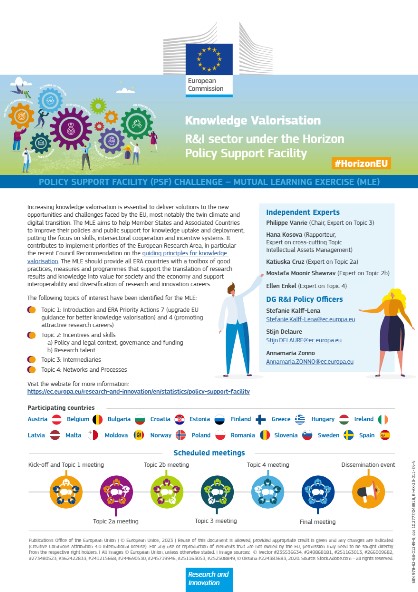
Factsheet - Mutual Learning Exercise on R&I Knowledge Valorisation
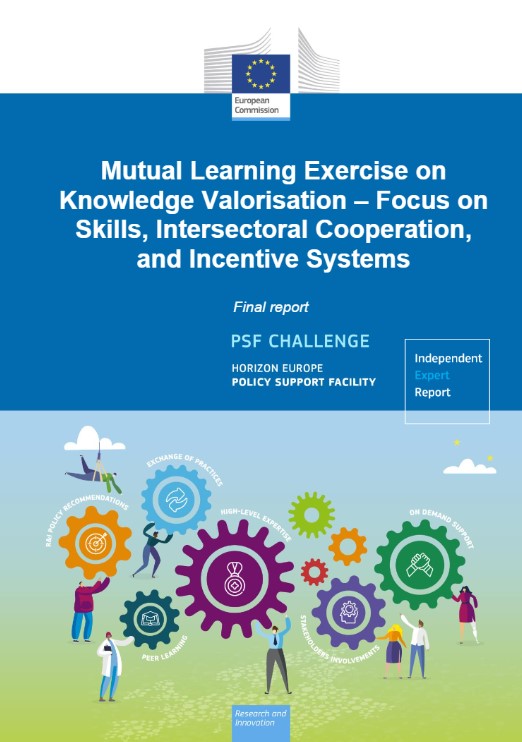
The report summarises the key findings of the MLE on Knowledge Valorisation – Focus on Skills, Intersectoral Cooperation, and Incentive Systems where 18 countries participated. The report includes policy recommendations together with a policy toolbox and many inspirational examples.
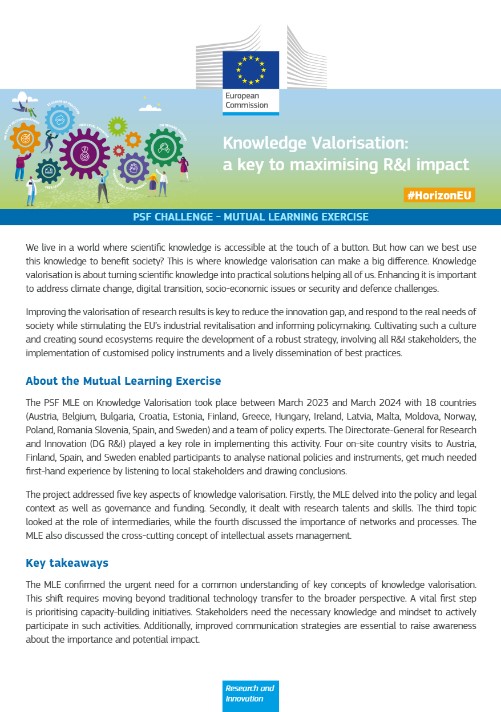
The summary article presents key findings from the Mutual Learning Exercise on Knowledge Valorisation. From March 2023 to April 2024, participating countries collaborated to exchange best practices and lessons learnt to improve their policies and public support for knowledge adoption and deployment, with a focus on skills, intersectoral cooperation, and incentive systems.
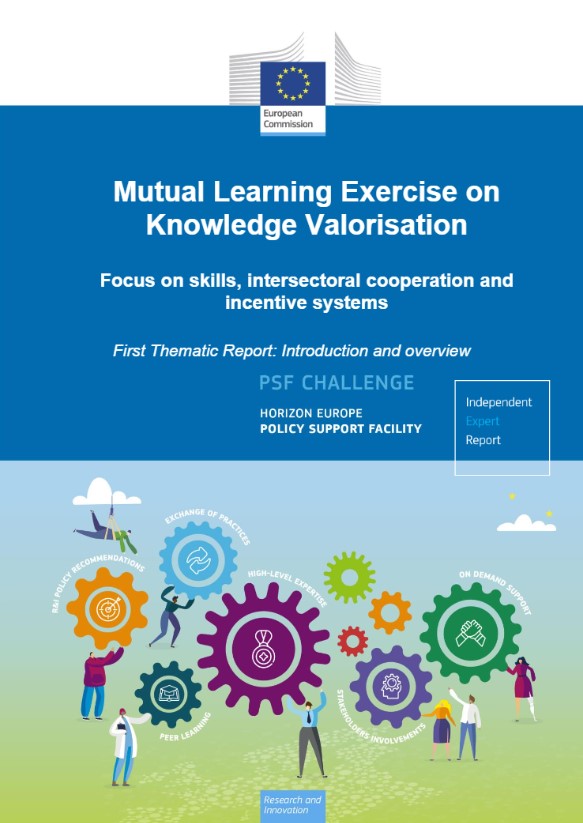
The European Commission together with the participating countries launched a Mutual Learning Exercise on Knowledge Valorisation, with a particular focus on skills, intersectoral cooperation and incentive systems.
This first Thematic Report provides background information on the evolution of the concept of the “Knowledge Valorisation” approach, its context within the ERA policy agenda and further develops the MLE framework, modus operandi, its scope and specific topic areas.
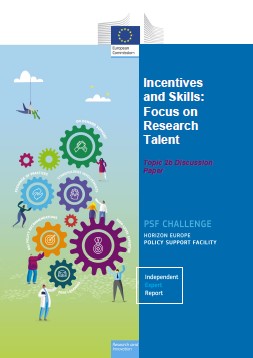
The Discussion Paper focuses on the research talents, capacity building and intersectoral mobility for knowledge valorisation. The Paper stresses the importance of recognising the incentives for researchers, necessary training for demand driven skills development and the challenges and recommendations to promote academia business cooperation, bi-directional intersectoral mobility.
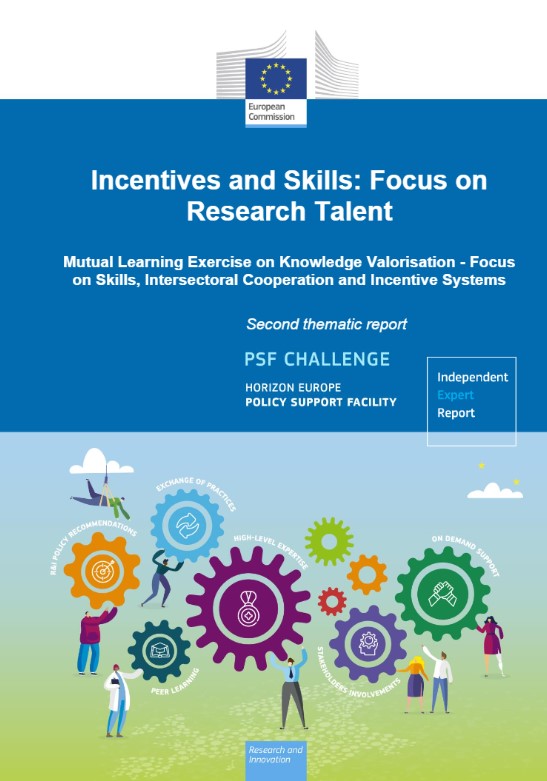
The Thematic report focuses on the lesson learned from the Topic 2b meeting in Vienna on research talents, capacity building and intersectoral mobility for knowledge valorisation. The report highlights the need for fostering intersectoral mobility to bolster innovation in Europe.
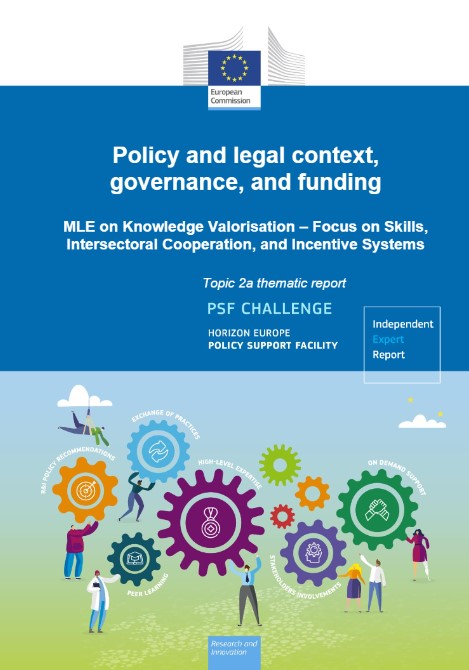
The Thematic Report focus on the lessons learned from discussions of the MLE on knowledge valorisation on policy and legal context, governance, and funding. The report highlights the critical importance of aligning a long-term strategic vision and goals with supporting tools for knowledge valorisation, including financial schemes, regulatory frameworks, and soft instruments.
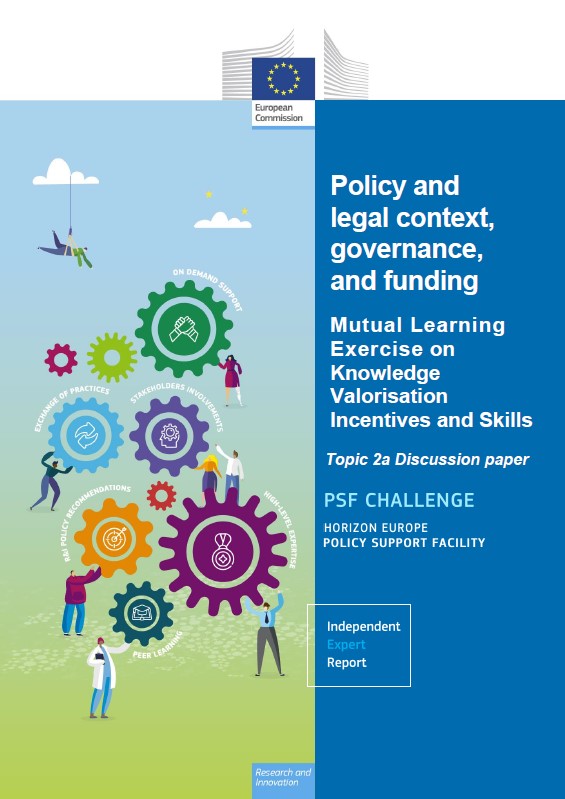
The Discussion Paper explores the policy and legal landscape for fostering knowledge valorisation in R&I. It focusses on the key national support mechanisms, such as funding, regulations, and soft instruments, highlighting the importance of a collaborative ecosystem for maximizing research impact.
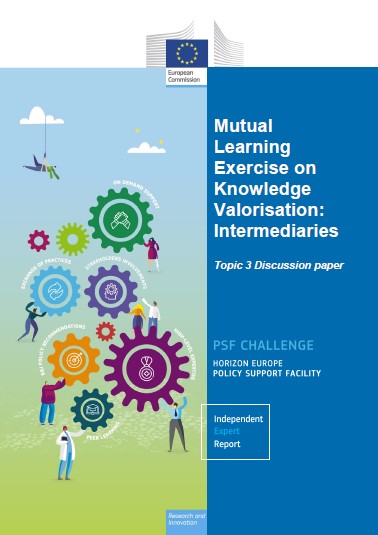
The Discussion Paper focuses on knowledge valorisation intermediaries. The document summarises the rationale behind the role given to knowledge valorisation intermediaries in an open ecosystem, maps and analyses the landscape of established intermediaries, identifies the main policy challenges, and characterises new approaches and models adopted by conventional and novel intermediaries.
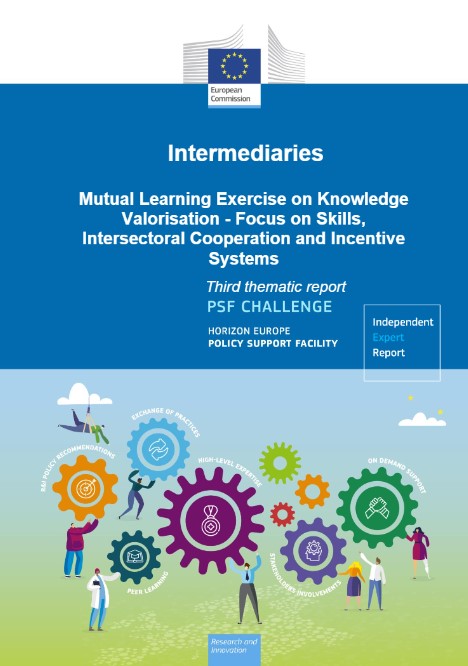
This report outlines knowledge valorisation intermediaries, explaining their role in open ecosystems and multi-actor perspectives. It explores the intermediary organisations as key players in knowledge valorisation, surveys existing intermediaries, describes new approaches and models used by both traditional and innovative intermediaries, and examines major policy implementation challenges.
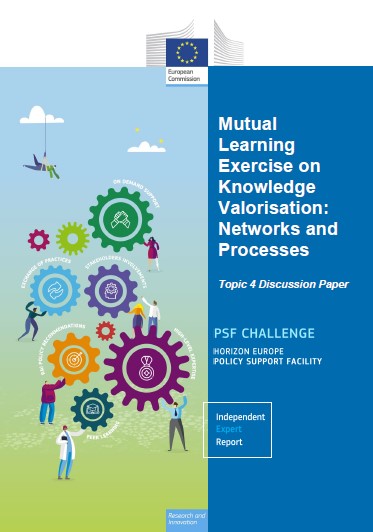
Knowledge networks connect people and organizations to share, create, and value knowledge. They can grow from local communities to national ecosystems.
This Discussion Paper explores how knowledge networks can create more disruptive innovation and bridge knowledge gaps. It also examines the processes and conditions that facilitate knowledge sharing and creation in networks.

The report focusses on the insights gained from the Topic 4 MLE meeting held in Helsinki, concentrating on multi-stakeholder networks and processes for knowledge valorisation. The report highlights the need for fostering multi-stakeholder networks to address regional, national, and European interests and discusses the important role of the public sector/authorities in building and maintaining those networks.

The Discussion Paper focuses on the cross-cutting topic “Intellectual Assets Management” within the framework of the Mutual Learning Exercise on Knowledge Valorisation (Focus on skills, intersectoral cooperation and incentive systems). The document sets the scene for interactive discussions and the ongoing exchange of knowledge and best practices defining the potential new actions and tools how to strategically approach knowledge valorisation and managing “intellectual assets” in the context of the new wider paradigm.
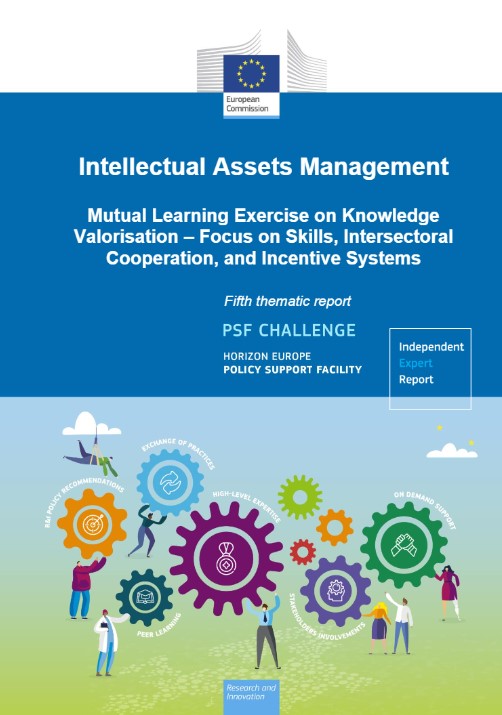
This report explores the shift from traditional intellectual property (IP) protection to broader intellectual asset management in R&I. It addresses the "why" and "how" of this change, offering recommendations for policymakers. The report starts with the legal framework and explores diverse stakeholder viewpoints, advocating an open approach to managing intellectual assets while acknowledging current challenges.
